How about demanding that they STOP deliberately starving Gazans.
I swear, Democrats only care about words and not actions. Which certainly explains why they interpret all criticism as coming from russian trumpists.
Welcome to the discussion of US Politics!
Rules:
Links must be to the original source, not an aggregator like Google Amp, MSN, or Yahoo.
Example:

We ask that the users report any comment or post that violate the rules, to use critical thinking when reading, posting or commenting. Users that post off-topic spam, advocate violence, have multiple comments or posts removed, weaponize reports or violate the code of conduct will be banned.
All posts and comments will be reviewed on a case-by-case basis. This means that some content that violates the rules may be allowed, while other content that does not violate the rules may be removed. The moderators retain the right to remove any content and ban users.
That's all the rules!
Civic Links
• Congressional Awards Program
• Library of Congress Legislative Resources
• U.S. House of Representatives
Partnered Communities:
• News
How about demanding that they STOP deliberately starving Gazans.
I swear, Democrats only care about words and not actions. Which certainly explains why they interpret all criticism as coming from russian trumpists.
Biden in a deep bunker somewhere:
So I told Bibi...
(looks around)
biiiiiiitch...

US said to ask Israel to cover tracks better so as not to implicate US in the extermination of Arab babies
Israel has been starving Gaza since the 90s.
Sources for anyone who interested:
The enclosure began in the 70s, the restricting of imports/exports in the 90s, the blockade implemented in the 00's significantly worsened the already bad conditions deliberately imposed on the Occupied population, while being repeatedly bombed
De-development via the Gaza Occupation
Between July 1971 and February 1972, Sharon enjoyed considerable success. During this time, the entire Strip (apart from the Rafah area) was sealed off by a ring of security fences 53 miles in length, with few entrypoints. Today, their effects live on: there are only three points of entry to Gaza—Erez, Nahal Oz, and Rafah.
Perhaps the most dramatic and painful aspect of Sharon’s campaign was the widening of roads in the refugee camps to facilitate military access. Israel built nearly 200 miles of security roads and destroyed thousands of refugee dwellings as part of the widening process.' In August 1971, for example, the Israeli army destroyed 7,729 rooms (approximately 2,000 houses) in three vola- tile camps, displacing 15,855 refugees: 7,217 from Jabalya, 4,836 from Shati, and 3,802 from Rafah.
Through 1993 Israel imposed a one-way system of tariffs and duties on the importation of goods through its borders; leaving Israel for Gaza, however, no tariffs or other regulations applied. Thus, for Israeli exports to Gaza, the Strip was treated as part of Israel; but for Gazan exports to Israel, the Strip was treated as a foreign entity subject to various “non-tariff barriers.” This placed Israel at a distinct advantage for trading and limited Gaza’s access to Israeli and foreign markets. Gazans had no recourse against such policies, being totally unable to protect themselves with tariffs or exchange rate controls. Thus, they had to pay more for highly protected Israeli products than they would if they had some control over their own economy. Such policies deprived the occupied territories of significant customs revenue, estimated at $118-$176 million in 1986.
In a report released in May 2015, the World Bank revealed that as a result of Israel’s blockade and OPE, Gaza’s manufacturing sector shrank by as much as 60% over eight years while real per capita income is 31 percent lower than it was 20 years ago. The report also stated that the blockade alone is responsible for a 50% decrease in Gaza’s GDP since 2007. Furthermore, OPE (combined with the tunnel closure) exacerbated an already grave situation by reducing Gaza’s economy by an additional $460 million.
Page 402
The Gaza Strip: The Political Economy of De-Development - Third Edition by Sara M. Roy
Blockade, including Aid
Hamas began twenty years into the occupation during the first Intifada, with the goal of ending the occupation. Collective punishment has been a deliberate Israeli tactic for decades with the Dahiya doctrine. Violence such as suicide bombings and rockets escalated in response to Israeli enforcement of the occupation and apartheid.
After the 'disengagement' in 2007, this turned into a full blockade; where Israel has had control over the airspace, borders, and sea. Under the guise of 'dual-use' Israel has restricted food, allocating a minimum supply leading to over half of Gaza being food insecure; construction materials, medical supplies, and other basic necessities have also been restricted.
The blockade and Israel’s repeated military offensives have had a heavy toll on Gaza’s essential infrastructure and further debilitated its health system and economy, leaving the area in a state of perpetual humanitarian crisis. Indeed, Israel’s collective punishment of Gaza’s civilian population, the majority of whom are children, has created conditions inimical to human life due to shortages of housing, potable water and electricity, and lack of access to essential medicines and medical care, food, educational equipment and building materials.
Gaza Infographics
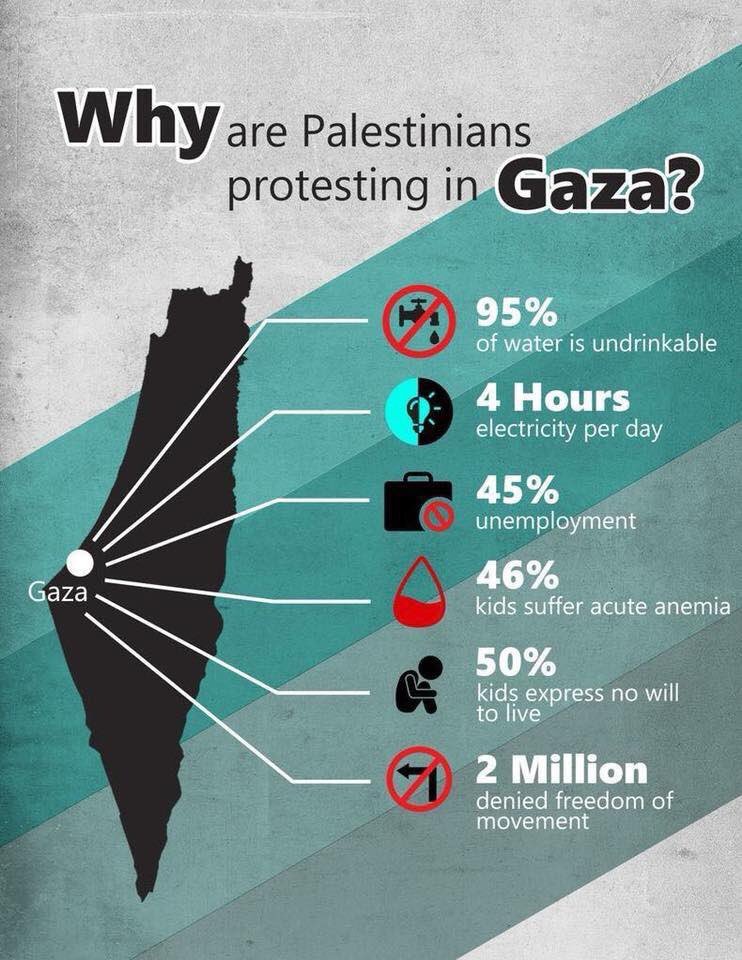
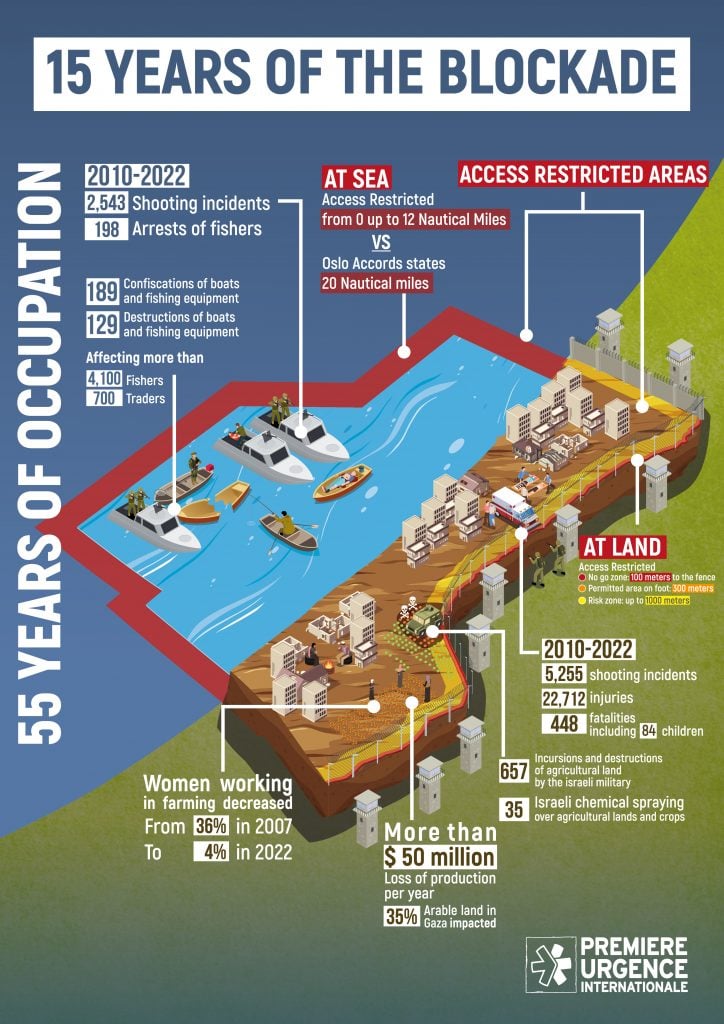
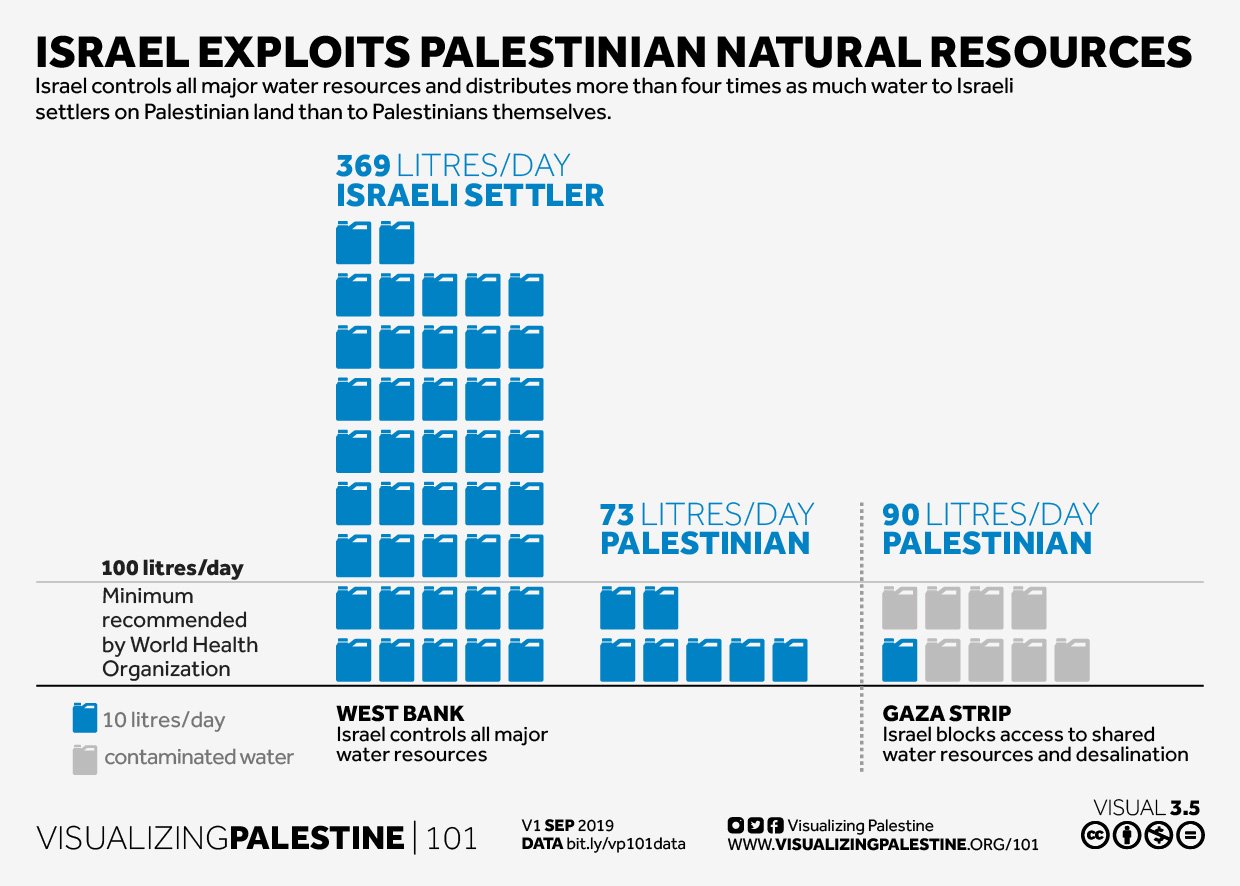
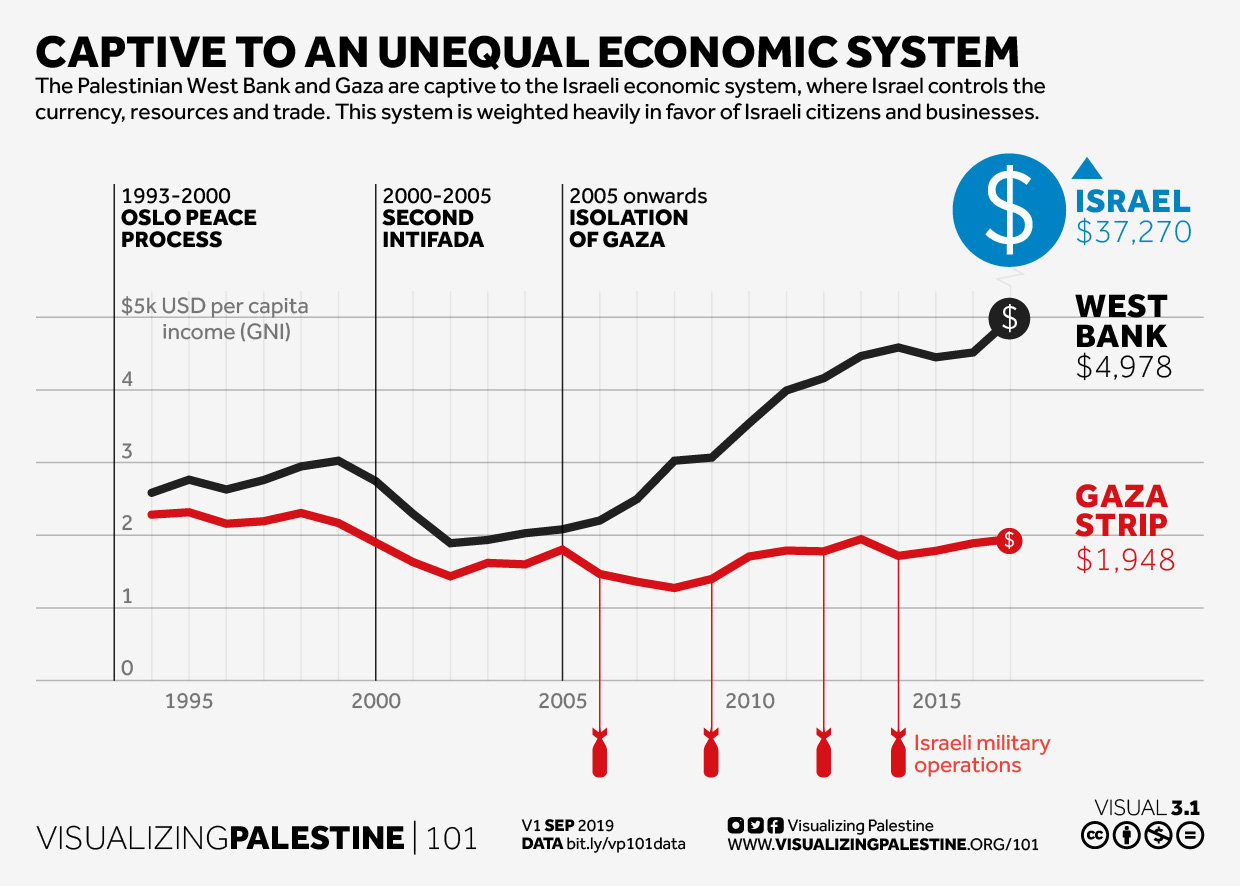
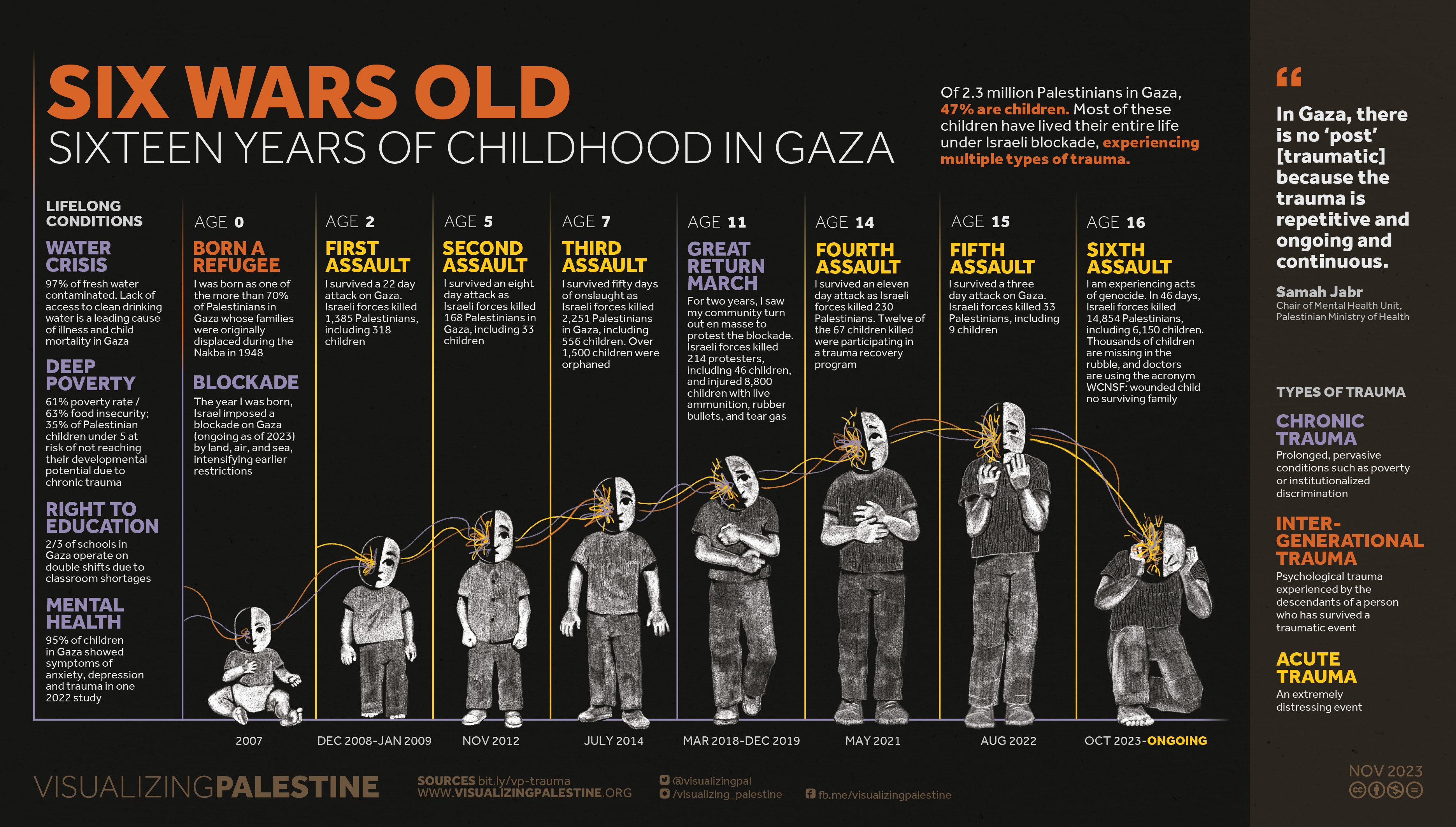
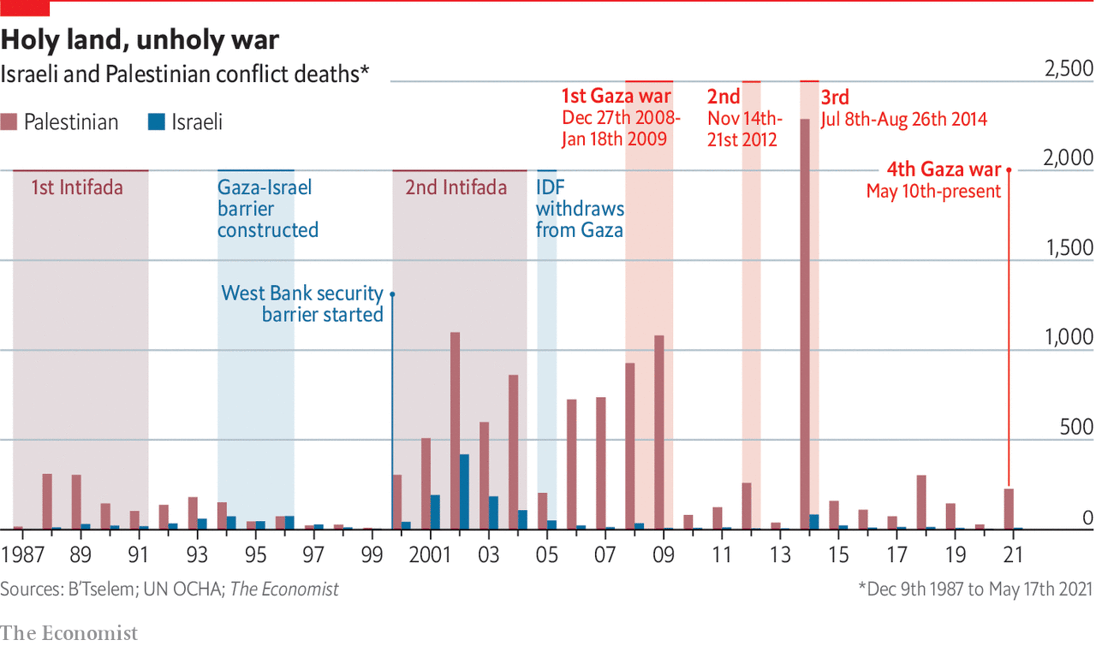
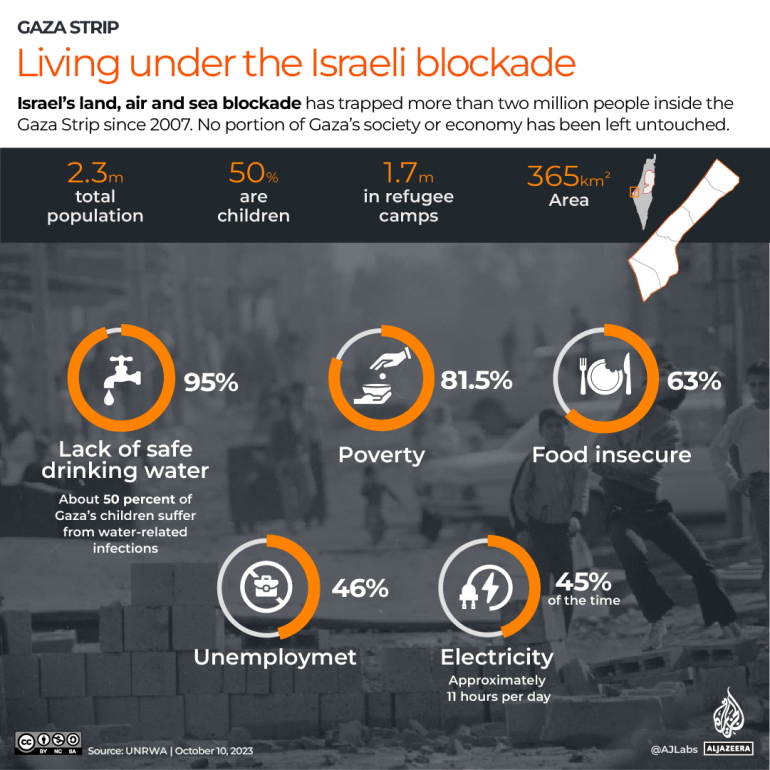
Thanks for the backup on this, it's really disheartening to see how little people actually know about what Israel does over there.
And it's not just Gaza, it's the West Bank, Lebanon, and Golan too.
They'll declare whatever you want them to, but it won't make it true.
Declaring it makes it true, too?
The reddest of lines
We are bringing in aid on a wide scale and without limitation
Are you though? Last I'd heard, you still limit dual-use tech and, well, that's a limitation.
